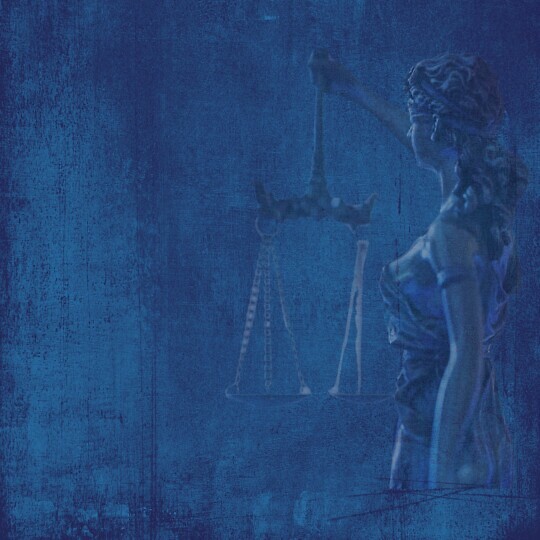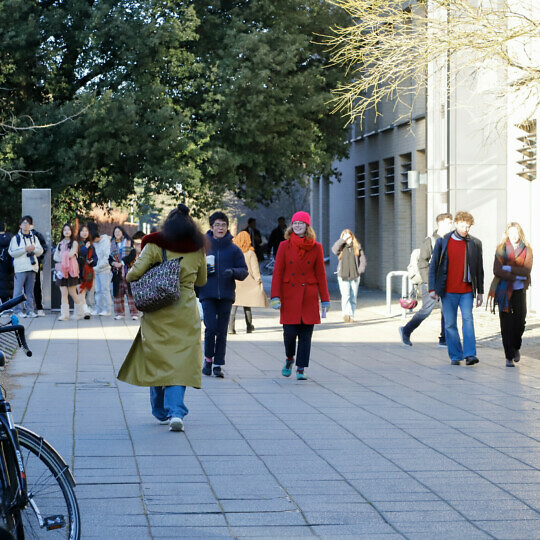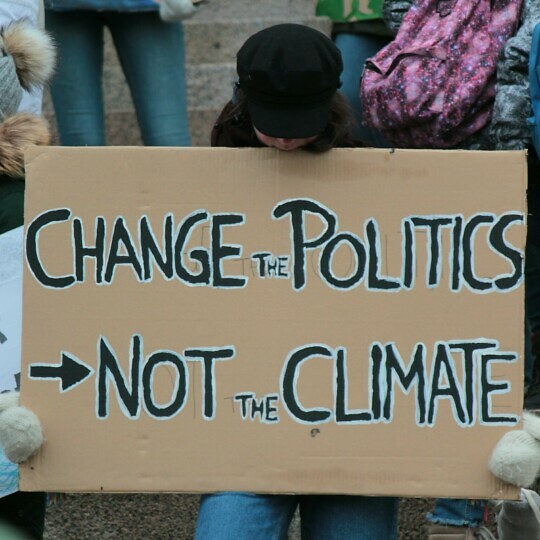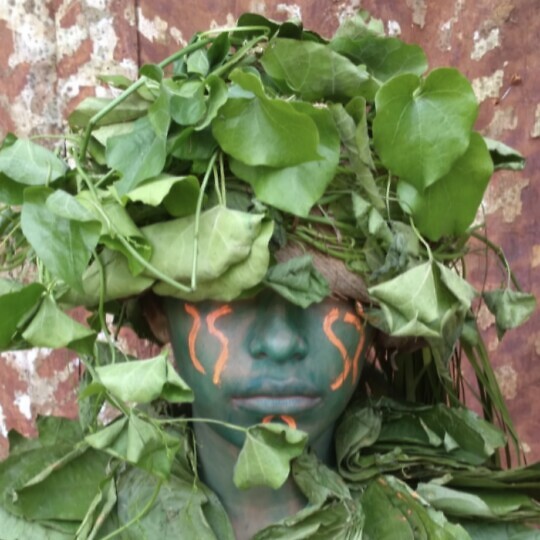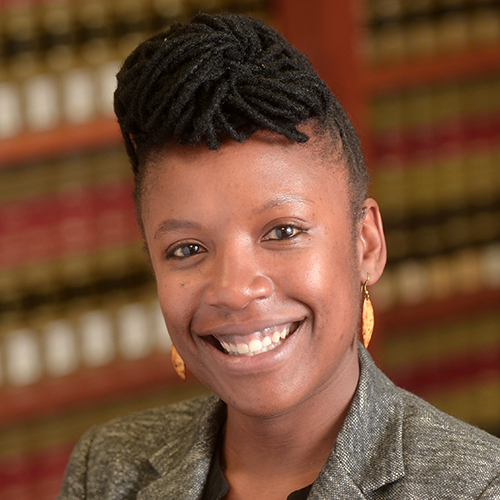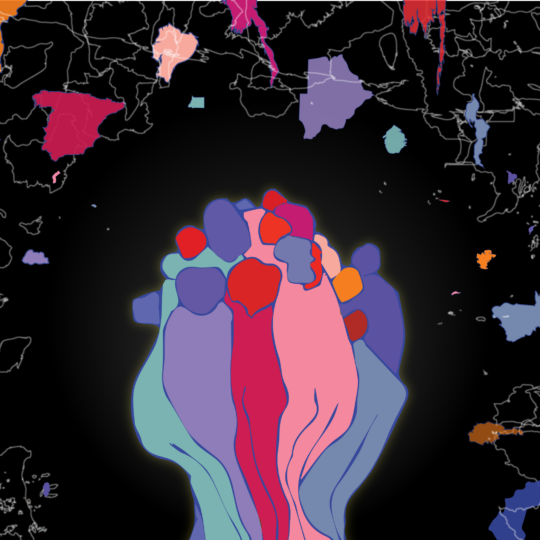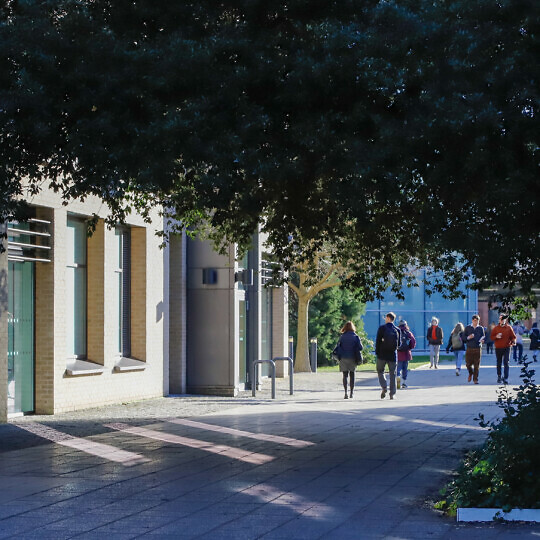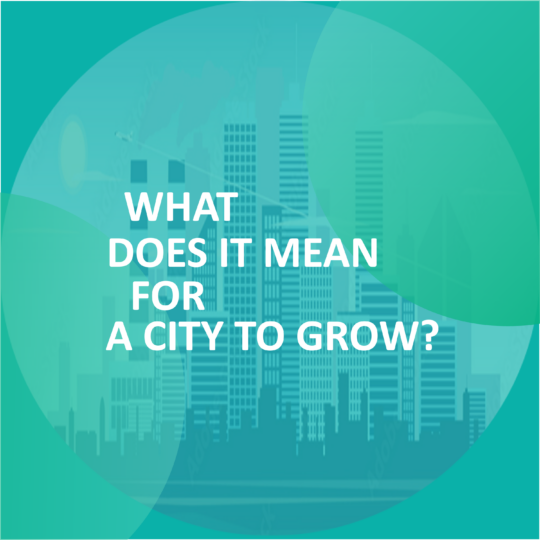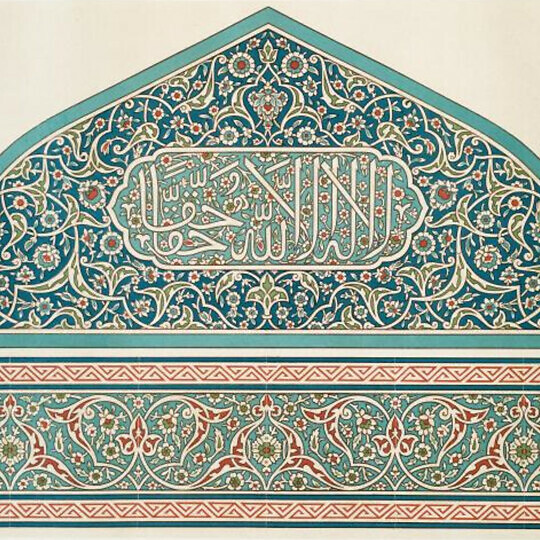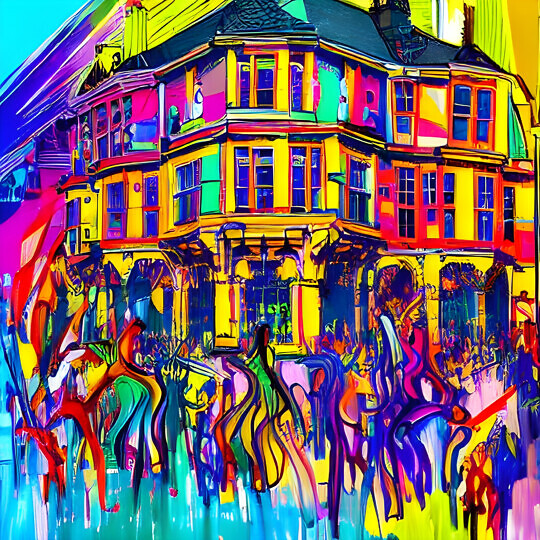| 27 Mar 2015 - 28 Mar 2015 | All day | CRASSH, Alison Richard Building, 7 West Road, CB3 9DT - SG1&2 | |
- Description
- Programme
- Abstracts
Description
Register online via the link at the top right hand side of this page
Conference fee: £50 (full), £25 (students) – includes lunch, tea/coffee
Deadline: Monday 23 March 2015
Twitter Hashtag: #justiceinAfrica
Convenors
Jessica Johnson (Research Fellow in Social Anthropology, Peterhouse, Cambridge)
George Karekwaivanane (Smuts Research Fellow, Centre of African Studies, Cambridge)
Summary
In recent decades, justice has been overshadowed as a subject of concern to scholars of Africa by vast literatures centring on rights, crime, punishment, policing and social order. This neglect of justice is striking given the increasing presence of international justice institutions, such as the International Criminal Court, on the African continent and the remarkable diversity of legal structures of justice. Across Africa complex pluralities of ‘customary’, religious, state, and transnational justice regimes interact on what is often contested terrain. This interdisciplinary conference will place the negotiation of competing notions of justice under scrutiny, with the aims of:
- Moving beyond currently dominant themes in socio-legal studies of Africa by asking broader questions about the aims and aspirations of those engaging with formal, informal or ‘customary’ law, legal reform, and legal institutions.
- Exploring the potential of a focus on justice to overcome limitations associated with the study of human rights, not least their questionable resonance with the vernacular concerns of African citizens. And at the same time, probing the relationship between rights and justice.
- Considering the conceptual possibilities of justice as a means of bypassing contested notions of legal pluralism for understanding intersections of local, national and international legalities.
- Remaining alert to what a focus on justice might obscure or exclude. How, for example, does the language of justice relate to concerns about power and inequality?
- Gathering together scholars from a variety of disciplines whose work converges on issues of justice in Africa and whose projects have not previously been brought into conversation.
The focus of the conference is on the many and varied actors pursuing visions of justice in Africa – their aspirations, divergent practices and articulations of international and vernacular idioms of justice. We will bring together, in a coherent format, topics of research that are at the cutting edge of contemporary scholarship across a wide range of disciplines, including activism, resource extraction, international legal institutions, and post-conflict reconciliation. Our engagement will be both empirical and theoretical: we aim to grapple with alternative approaches to the concept of justice and its relationships with law, morality, and rights.
The Keynote address will be given by Kamari Maxine Clarke (Professor of Anthropology, Yale/Pennsylvania).
Sponsors

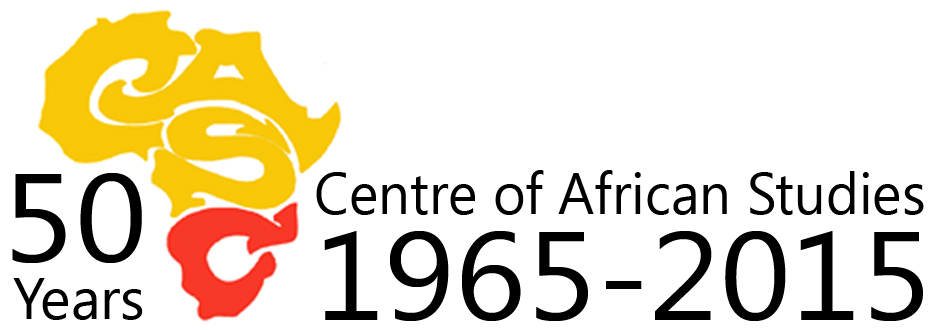
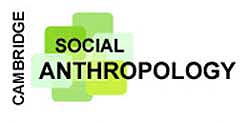

Supported by the Centre for Research in the Arts, Humanities and Social Sciences (CRASSH), the Centre of African Studies, the Division of Social Anthropology, the Centre for Governance and Human Rights, the Trevelyan Fund and the Smuts Memorial Fund.
Accommodation for speakers selected through the call for papers and non-paper giving delegates
We are unable to arrange or book accommodation, however, the following websites may be of help.
Visit Cambridge
Cambridge Rooms
University of Cambridge accommodation webpage
Administrative assistance: events@crassh.cam.ac.uk
Programme
| DAY 1 - Friday 27 March | |
| 10.00-10.30 | Registration and Coffee |
| 10.30-10.45 | WELCOME
|
| 10.45-12.30 | PANEL 1: Rights and Justice Chair: Harri Englund (University of Cambridge)
|
| 12.30-13.45 | Lunch |
| 13.45-15.15 | PANEL 2: Gender Justice Chair: Jessica Johnson (University of Cambridge)
|
| 15.15-15.30 | Coffee break |
| 15.30-17.00 | PANEL 3: Justice and Resources Chair: Kamari M. Clarke (University of Pennsylvania)
|
| 17.00-18.00 | Drinks reception Paper-giving delegates and session chairs please make your way to the Allhusen Room at Trinity College for dinner at 7pm |
| DAY 2 - Saturday 28 March | |
| 9.30-11.00 | PANEL 4: Justice in the Plural Chair: Dorothy Hodgson (Rutgers University)
|
| 11.00-11.25 | Coffee break |
| 11.25-12.55 | KEYNOTE ADDRESS Chair: Christopher Forsyth (University of Cambridge)
|
| 12.55-13.50 | Lunch |
| 13.50-15.20 | PANEL 5: Contesting Justice Chair: George Karekwaivanane (University of Cambridge)
|
| 15.20-15.45 | Coffee break |
| 15.45-17.15 | PANEL 6: Transitional Justice Chair: Sarah Nouwen (University of Cambridge)
|
| 17.15-17.30 | CONCLUDING REMARKS Harri Englund (University of Cambridge) |
Abstracts
KEYNOTE ADRESS
Kamari Maxine Clarke (University of Pensylvania): #BringBackOurGirls hashtag: International Justice, Sentimentality, and the Politics of the Unsayable
Last spring the #BringBackOurGirls hashtag was mobilized and quickly popularized by politicians, celebrities, concerned citizens, and the first lady of the United States, Michelle Obama. The articulated goal was the return of the more than three hundred Nigerian girls abducted from a school in Nigeria by Islamic militants. The support of a global network interested in protecting those victimized by the abductions led to a significantly impressive mobilization in which millions of dollars were committed to communicating the demand for the return of innocent girls to their families. The forms of sentimentality associated with the movement coupled with the invocation of the responsibility to protect, and the place of trials as the mode of social repair represents a contemporary brand of international justice that is the focus of this talk.
The justice formation that Clarke explores is concerned with why the history of inequality was never a way to talk about justice for the abducted girls and why the campaign was so ineffective as a mechanism for returning the girls and preventing future violence. By asking what the #BringBackOurGirls hashtag might tell us about the place of the political in an increasingly juridified social world, Clarke explores the existence of the formation of a new form of neo-justice of the twenty-first century that negates the relevance of inequality embedded in much deeper histories and politics that inspire violence and instead focuses on justice as norms of individual responsibility.
Clarke concludes by showing how this new regime represents a justice fetish in which exaggerated qualities of justice are attributed to it and sentimental discourses are used to reinforce its moral or legal force. She shows how it exists substantively as a tool for the reinforcement of particular forms of secular and military governance in the War on Terror rather than as a tool of restorative redress.
OTHER PAPERS
Jocelyn Alexander (University of Oxford): Law and the politics of loyalty: the pursuit of justice in Zimbabwe’s 1980s’ treason trial
This paper seeks to explore the pursuit of justice in a moment of extreme uncertainty and violence in the making of Zimbabwe’s new nation and state in the 1980s. It takes as its focus a trope of the just concluded armed struggle – the accusation of treason – and places it amidst the diverse constructions of justice rooted in the Rhodesian legal system, long-standing nationalist imaginings, and exile politics. It traces in particular the vexed relationships between law, political loyalty and justice. My focus is on the high-profile treason trial of members of ZAPU’s armed wing in 1983. The accused cast their fate and terrible suffering as the grossly unjust consequence of a failed project of state-making by the new government of ZANU(PF), notably but not only in the legal arena. For them, the wages of political loyalty, rooted in long histories of violent division and wrought in the shadows of the law, underlined the central importance of the formal legal arena as refuge, arbiter of justice, and symbol of the nation.
Gerhard Anders (University of Edinburgh): ‘We bring the court to the people’: Competing visions of justice at outreach events of the Special Court for Sierra Leone
It has become common practice for humanitarian and development agencies to directly engage people in the regions they are working in. This drive to literally reach out to the people affected by war, poverty and disorder has been embraced by the international criminal tribunals. Leading in this regard has been the Special Court for Sierra Leone. Its outreach section has been presented as great success and model for other international tribunals. In the court’s public relations strategy the outreach programme has played a central role in showing to donors and Western audiences that it enjoys legitimacy in Sierra Leone.
Ethnographic evidence from outreach events in rural eastern and northern Sierra Leone raises doubts about the Special Court’s legitimacy in Sierra Leone. These events constituted one of the few moments of direct interaction between court representatives and audiences but they only highlighted the disconnect between the court’s vision of global justice and people’s expectations. Many in the audience used these events as sites of a public sphere where the court’s legitimacy could be questioned. Very often they rejected the court’s vision of retributive justice that resulted in long prison sentences for a few individuals deemed to bear ‘greatest responsibility’ for war crimes. Instead, people used these events to demand recognition of their suffering, compensation and social justice. In doing so they sought to engage the court’s representatives in a fundamental discussion about justice. Confronted with this challenge the outreach officers could only respond with a legalistic justification that failed to address the issues that mattered to their audiences. The mismatch between competing visions of justice experienced at these events exemplifies the challenge faced by the project of global justice.
Felicitas Becker (University of Cambridge): Notions of rights, fairness, equality and justice in Swahili-language Muslim sermons from contemporary East Africa
The call for papers for this workshop contrasts ‘justice’ with (often legally defined) ‘rights’, implying that the former concept makes more ‘emic’ sense in Africa. Commentary from Muslim papers, activists and preachers positions these terms quite differently. Lack of scope for the application of Islamic (‘sharia’) law is an important plank of East African Muslims’ narratives of their marginalisation from the region’s post-colonial states. The state’s overriding of rights and obligations defined by Islamic law, then, is itself perceived as an act of injustice; justice would be achieved by strengthening Islamic law. In this sense, the problem for Muslims is the unequal competition between different legal systems: sharia on one hand; secular Tanzanian law and international human rights law on the other. (Note that the latter two are not necessarily in agreement; rights NGOs, for instance, tend to criticise the exclusion of pregnant girls from schooling, which remains the law in Tanzania, as a breach of their human right to education.) But ’sharia’ law itself is a much more elusive thing, and the authority to apply it much more contested, than demands for its empowerment typically admit. It forms part of a broader vocabulary expressing concerns about justice, fairness, rights and equality. What, for instance, does it take to be a ‘just’ family patriarch? How does a husband treat several wives equally, as the Prophet enjoins him to do, despite inevitably unequal emotional bonds? Notions of both justice and right here become subsumed into the broader problem of how to live well under the eyes of God in an imperfect world.
M.M.M. Bolaane & Peter Redvers-Lee (University of Botswana): In pursuit of spatial justice: The San of Botswana and their land rights struggle
Spatial justice is a notion applied widely to urban spaces, frequently in analyses of areas with high poverty rates and occupied by marginalised communities. The related and sometimes intertwined concept of social justice has been used as a framework for understanding the adverse conditions facing many indigenous communities, including the San, throughout the world. This paper scrutinises these two competing notions of justice with reference to San land claims. The paper looks at the history of dispossession of the San from land in Botswana and asserts that spatial justice is a more salient notion as the San themselves see cultural rights and human rights in spacial justice terms, in particular with regard to the occupancy of land. The methods the paper uses are participatory observation of meetings with San land rights advocates, interviews with San community leaders, and an examination of court testimony in land rights claims. The paper finds that a strong case can be made for spatial justice as the more valid lens through which to view the San struggle. The paper thus advances arguments around justice and San claims while addressing a gap in the literature regarding the San and their view of the restoration of land as spatial justice.
Phil Clark (SOAS): Distant Justice: The Politics of the International Criminal Court in Africa
The International Criminal Court (ICC) is struggling at every level of its operations in Africa – in terms of its investigations, prosecutions, and relations with domestic governments, judiciaries and affected communities. A core cause of the ICC's travails is its remoteness from the societies in which it operates. The Court's conceptual and practical 'distance' from the places where crimes are committed greatly undermines its effectiveness and requires a major rethink about how international criminal justice is conducted, especially in the Global South. This presentation draws on 18 months of fieldwork in central Africa and The Hague since 2006, including 600 interviews with ICC officials, domestic political, legal and civil society actors, and local communities.
Jonathon Earle (Centre College, Kentucky): Historical imagination and competing conceptions of political justice in colonial Buganda
This paper explores the intellectual history of justice (–kkaanya) in the eastern African kingdom of Buganda. Following the Second World War, scholars of Africa argued that the international language of human rights offered autochthonous communities new political possibilities throughout decolonisation. By adopting global human rights, it was thought that newly formed states would transition into modernised democracies. In sub-Saharan Africa, though, the promises of classical liberalism were short-lived. By the mid-1960s, Kwame Nkrumah’s industrialising government was overthrown in a coup d'état. In Apartheid southern Africa, official histories and the language of human rights were used to legitimise the state’s racialised order. In Uganda, the state experienced extensive rupture driven by conflicting beliefs about the legal constraints of political monarchy and parliamentary authority. Uganda was governed by seven administrations between 1979 and 1986; each removed by military force. Instability in twentieth-century Uganda propelled local debates over the legitimacy of political justice. In the 1950s, Catholic dissenters challenged Protestant control of the state through print and party activism. Whereas elite Protestant chiefs used the language of sala ‘musango to talk about justice, a term that underscored executive power, marginalised Catholics talked about obwenkanya, a word borrowed from the early nineteenth century that emphasised political inclusivity, the practice of two disparate communities coming together to be equally heard. On the eve of Independence, one Catholic dissenter, Benedicto Kiwanuka, Uganda’s first elected president, radicalised –kkaanya by adapting Locke and Rousseau to imagine a liberal state, a polity with a nonpartisan judiciary. By examining competing conceptions of justice in southern Uganda, this paper places the genealogies of political thought in late colonial Uganda within its vernacular registers. In so doing, it explores possible alternatives to the practice of justice in the colonial and postcolonial state by rereading postwar particularities alongside precolonial intellectual histories.
Dorothy L. Hodgson (Rutgers University): Beyond rights: gender, collective protest, and the pursuit of justice
In 2010, over 1,500 Maasai women disobeyed stern police warnings to march together to the town of Loliondo and turn in their membership cards to CCM, the dominant political party. The women were protesting the evictions of thousands of Maasai from their area in July 2009, which included burning their homesteads and confiscating thousands of cattle, as well as government plans to alienate even more village land by creating a buffer zone along the boundary of the Serengeti National park. This protest is just one of several recent actions staged by Maasai women in northern Tanzania over the past few years to demand justice – in their terms – from people and institutions, including CCM and the Tanzanian state, who they perceive as fomenting injustice.
The 2010 protest in Loliondo was hardly an anomaly for Maasai women or African women more generally. African women have a long, documented history of collective protests, from pre-colonial Pokot “shaming parties” in Kenya described by Edgerton and Conant to the infamous Igbo Women’s War analyzed by Judith Van Allen, among others, to the recurrent protests by Nigerian women against Shell Oil. Despite colonial efforts to channel the expression and resolution of disputes and grievances into legal channels, and the rise of rights-based frameworks in the post-colonial period, reports of collective protests by women like Maasai continue into the present. The persistence of female collective action as a strategy for voicing and challenging injustice suggests possible limitations to, frustrations with, or even ignorance of the legalistic modes of action promoted by courts, states, and even national and transnational feminist organizations. What, then, is the purpose of these protests? Why is collective protest the preferred form of seeking justice for these women? What are the underlying ideas of justice, personhood, agency and power expressed by these actions?
To address these questions, this paper examines the symbolism and substance of these recent collective actions by Maasai women, explores their historical roots in customary forms of female collective protest, and compares the ideas of justice, morality and personhood that are deployed with those of human rights approaches. The paper is based on contemporary accounts of the actions and almost 30 years of historical and ethnographic research with Maasai communities.
Patrick Hoenig (Independent Scholar & Attorney-at-Law): Justice intervention: mobile courts in the Eastern Democratic Republic of the Congo
In the last decade, a growing body of literature has focused on the possibilities and, increasingly, the limitations of justice interventions in spaces where state decline goes hand in glove with the exercise, by non-state actors, of powers usually ascribed to state authorities, in particular the upholding of law and order. In some jurisdictions in sub-Saharan Africa mobile courts have been introduced, which, supported by international NGOs and the UN system, travel with public prosecutors and defence attorneys to remote parts of the provinces under their jurisdiction to put on trial perpetrators of severe crimes frequently amounting to crimes against humanity. These courts, constituted of regular judges, are working to extend the reach of the state in areas where it has lost control or where its control is being contested by non-state actors. Using the eastern Democratic Republic of the Congo (DRC) as a case study, the paper aims to inform the discourse on justice-making in areas of limited statehood in three ways.
First, the paper will discuss how the introduction of mobile courts has changed the landscapes of justice in conditions of instability where governance is often provided alternately by state and non-state actors. State-centred concepts of justice hinging on the monopoly of violence and the separation of powers will be squared with notions of ambiguity and hybridity as they arise from fragmentation of power in areas affected by intra-state war. Second, the paper will ask how ‘state justice’ is anchored in the everyday experience of people negotiating borders, markets and identities. In case our findings suggest that rule-making is not axiomatically tied to the state and its workings the prevailing logic of associating peace and justice with the eradication of spaces of limited statehood will have to be tested against the specific protection needs of people living in zones of mixed authority. Third, the paper strives to explain how shifting notions of peace, justice and just peace translate into rule-making in spaces of limited statehood. This sets the stage for inquiries into the nature, functioning and breakdown of solidarity networks that endorse authorities and sustain the rule of law by giving them legitimacy locally.
Extrapolating from the findings in the DRC, the paper will try to shed light on how legal pluralism serves to reconcile diverging ideas about the meaning of justice. A layered conception of justice, based on people’s experiences with local, national and international law, will help provide a conceptual tool box to meet the competing demands on legitimacy by state and non-state actors. Finally, understanding what drives processes of impunity and what people in the eastern DRC think drives them will be a prerequisite of putting in place measures aimed at ending systematic violations of human rights and generating transitional justice devices.
Stacey Hynd (University of Exeter): ‘Out of the mouths of babes’: tracing child soldiers’ notions of ‘justice’, in the Great Lakes Region, c.1980-2000s
Current legal discussions of African child combatants have focused almost exclusively on the criminalization in international law of child soldiering as a practice, and on whether child combatants should be considered as ‘victims’ or ‘perpetrators’ [Cohn and Goodwin Gill, 1994; Drumbl, 2012; McBride, 2014]. Children’s own notions and understandings of ‘justice’ however have been largely ignored [Bhabha, 2006; Baines, 2009; Fischer, 2013]. This paper argues that the modern ‘child soldier’ phenomenon is only partly linked to empirical evidence, and emerges from the entanglement of liberal humanitarianism, globalized constructions of ‘childhood’ and Western-led political discourses which have tended to silence children or appropriate their voices [Fass, 2003; Barnett, 2012 ; Rosen, 2007]. This paper argues that to facilitate effective process of rehabilitation, reintegration, and transitional justice, child soldiers’ own voices need to be inserted more firmly into debates, and that existing representations and mediations of those voices must be critiqued. The first section will focus on textual evidence, drawing narratives of in/justice from memoirs, interviews, humanitarian reports, truth and reconciliation commissions and trial transcripts. Drawing on legal anthropology, child sociology and historical methodologies, it will examine children’s voices from previous conflicts, including the Congo Wars, Rwandan Genocide, South Sudan and Uganda’s ‘Bush War’, to investigate children’s understandings of ‘justice’, and how this can both support and contest human rights discourses surrounding child combatants. The second section will analyse pilot fieldwork interviews conducted with eight former LRA child soldiers about their understandings of social and legal ‘justice’, exploring their shifting attitudes towards restorative justice and traditional Acholi methods of reconciliation, retributive justice and the positioning of child soldiering in international law, and the question of the ICC’s indictment of LRA leaders – including former child soldier Dominic Ongwen. This paper represents initial steps toward developing a new historicized methodology of analysing child soldiering, and justice for children in Africa.
Ngeni Kanyongolo (University of Malawi): Public services and justice: a case study of the legal treatment of defilement in Malawi
Defilement is one of the common sexual offences against children in Malawi. The Penal Code criminalises sexual intercourse with a girl below the age of 16 with or without her consent. However, research shows a number of challenges in the legal treatment of defilement cases by both the formal and traditional systems and therefore the protection of girls from sexual abuse. Such challenges include inefficiencies in delivery of public services by such agencies as the police and courts as compounded by traditional systems. Ultimately, the combination of the two adversely affects access to justice.
This paper is based on research conducted in 8 districts of Malawi in 2013. The research set out to investigate the extent to which the justice delivery system protects rights of children who have been sexually abused. It involved individual interviews, case reviews and focus group discussions. Part of the findings show that access to justice and protection of affected children is undermined by inefficiencies in public institutions such as the police, hospitals and courts, in the way that they handle defilement cases. These include arbitrary decision making and poor investigation by the police; lack of expertise and proper equipment to handle such cases in hospitals and poor evidence adduced before the court. The poor public service is compounded by social cultural factors that also adversely affect protection of children from sexual abuse at community level.
This paper therefore argues that the (in)efficiency of public service delivery by the police, hospitals and courts and the traditional system have a direct impact on the quality of justice available to children who have been sexually abused which is critical for the protection of the girl child in Malawi. It is further argued that the systemic failure to protect the girl child is a breach of children’s rights as enshrined in the Malawi Constitution.
Anna Macdonald (LSE): ‘You tell me to keep silent when they have thrown a bone which hit my eye?’: Transitional justice and ordinary justice in Acholiland, Northern Uganda
This paper examines the lived relationship between ‘transitional justice’ and the local provision of ‘ordinary’ justice and security in Acholiland, northern Uganda. Acholiland was the epicenter of the twenty-year war between the Lord’s Resistance Army (LRA) and the Government of Ugandan (GoU), which ended, roughly, in 2006. The conflict in northern Uganda was the subject of the International Criminal Court’s first investigation and arrest warrants, unsealed in 2005. For a short period between the unsealing of the arrest warrants and the subsequent failure of the Juba Peace Talks between the two parties in 2008, Uganda was the transitional justice case study. It conveniently provided empirical context for the major theoretical debates that characterized the emerging transitional justice field, including normative disagreements about the relationship between peace and justice and the relative merits of international versus indigenous approaches to justice. A range of transitional justice measures have been debated, and some implemented since that time, and yet we know remarkably little about how these have been experienced on the ground, in Acholiland.
Based on eight months of field research in both Kampala, and Acholiland, northern Uganda, this paper explores the relationship between the international and domestically driven ‘transitional justice agenda’ – in particular, the ICC, the domestic war crimes court and ‘traditional’ justice processes – and the plurality of ways in which communities across Acholiland, affected by violence, construct and experience co-existence, justice and social repair in the context of their everyday, post-conflict lives, and in the absence of what Veena Das referred to as ‘grand gestures’. In particular, the paper examines the aims and aspirations of those who provide, seek, and experience different forms of post-conflict justice, and the ways in which these complicate existing normative assertions about what ‘transitional justice’, as a largely external and mediated project, ought to achieve in any given context.
Sheryl McCurdy (University of Texas): Precarious positions: marginalised populations’ struggles to belong in Dar es Salaam, Tanzania
This paper explores how marginalized African communities in Dar es Salaam, Tanzania negotiate the liminal space between basic human rights, their precarious (il)legal status, and their pursuit of acceptance and an ordinary life. Acceptance and equal treatment are something gay men, lesbians, sex workers, and drug users long for, strive, and work for as they experience enacted and perceived stigma in their day-to-day routines. Heroin users, for example, are called ‘teja’ in Swahili, no longer considered human, they are referred to as insects. Over the last decade, key events and individuals have marked struggles over basic human rights and justice in Tanzania. Prominent Tanzanian female celebrities, Amina Chifupa, MP, and the singer Ray C., in very different and public ways, came to symbolize young drug users struggle for better chances and safer, better lives. In contrast, the New York-based Human Rights Watch, pushed, against local advice, for a June 2013 release of the Human Rights Watch volume, entitled “‘Treat Us Like Human Beings:’ Discrimination against Sex Workers, Sexual and Gender Minorities, and People Who Use Drugs in Tanzania,” that led to a back lash against these communities. The national media attacked their calls for justice and basic human rights. Tanzanians, whose efforts Human Rights Watch highlighted, experienced a backlash for their collaboration and retreated. This paper is based on personal observation, in-depth interviews, newspaper archives, annual reports, and participation along with four Tanzanian NGOs in harm reduction efforts conducted during two to eight week visits, three to four times a year since 2003. It examines the clashes among citizen groups and between citizens and international global activists as different groups contest past and current notions of practices and ways of being and negotiate new futures. Power and inequality feature prominently in words and practices denoting struggles over belonging.
Benson A. Mulemi (Catholic University of Eastern Africa): Social justice, moral space and the medical culture of cancer care in Kenya
The high incidence of cancer today portend looming global epidemic, which is rapidly emerging in Africa. Studies predict that 60% of the 17 million new global cases to be recorded every year by 2020 will be in developing countries. However, governments in sub-Sahara Africa are least prepared to address the growing cancer burden and low survival rates. In Kenya, cancer is the third cause of death after infectious and cardiovascular diseases. Among the other global causes of cancer, the situation in Kenya typify the link between the burdens of non-communicable diseases in Sub-Saharan Africa with weak social justice in healthcare. Cancer is a politically invisible disease and the medical culture of care in public hospitals depict socio-economic and health care inequalities in Africa. This paper draws on hospital ethnography in Kenya to explore how medical practises of cancer care reflect tensions between the quest for justice and the moral considerations affecting protection of rights. It departs from the popular conceptualisation of justice in relation to courts of law, and punishment for crimes and offences against recognized human rights. The paper emphasizes the government stewardship role in moderating possible tensions between the right to access health and social justice for vulnerable groups. In view of the Cancer Prevention and Control Act, 2012, I argue that unequal access to essential medical services in the Kenyan health system shape current medical improvisation culture of cancer care in a public hospital. Medical settings are moral spaces for balancing between protection of hope and treatment endurance and responsiveness to patients’ rights. The cancer civil society’s success in lobbying for enactment of the Act constrained the government to express willingness to oversee justice, yet provision of resources to support rights to cancer treatment and care is yet to materialise.
Nicola Palmer (King’s College London): Courts in conflict: interpreting the layers of justice in post-genocide Rwanda
The rise of international criminal trials has been accompanied by a call for domestic responses to extraordinary violence. Yet there is remarkably limited research on the interactions among local, national, and international transitional justice institutions. Rwanda offers an early example of multi-level courts operating in concert. This paper draws on material included in my forth-coming book ‘Courts in Conflict’ (OUP April 2015) and examines these pluralist responses to atrocity at a juncture when holistic approaches are rapidly becoming the policy norm.
The paper focuses on the practices of Rwanda's post-genocide criminal courts. Although the courts are compatible in law, an interpretive cultural analysis shows how and why they have often conflicted in practice. This hermeneutic analysis is based on 182 interviews with judges, lawyers, and a group of witnesses and suspects within the United Nations International Criminal Tribunal for Rwanda (ICTR), the national Rwandan courts, and the gacaca community courts. It shows that the judges and lawyers in the three institutions offer notably different interpretations of Rwanda’s transitional justice processes, illuminating divergent legal cultures that help explain the courts’ failures in effective cooperation and evidence gathering. The potential for similar competition between domestic and international justice processes is apparent in the current practice of the International Criminal Court (ICC). However, this competition can be mitigated through increased communication among the different sites of justice, fostering legal cultures of complementarity that more effectively respond to the needs of affected populations.
Holly E. Porter (LSE): Mango trees, offices & altars: The role of relatives, NGOs and churches after rape in northern Uganda
This paper reflects on why so many women never access justice or take advantage of available services after rape in northern Uganda. It focuses on roles of three prominent non-governmental actors: lineage-based kinship authority, churches, and NGOs examining the parts they played after 94 instances of rape in this study and more broadly, how they have shaped notions of rape and appropriate responses to it. Evidence from this study (participant observation over three years and 187 in-depth interviews) suggests that although NGOs and churches have impacted evolution of social norms, reactions to wrongdoing are primarily decided by extended family structures, and are subject to a primary value of social harmony.
Dinah Rajak (University of Sussex): Hope and betrayal on the platinum belt
The killings at the Marikana mines in 2012 was seen by many commentators and analysts as the inevitable culmination of neoliberal economics and divisive politics, as the battle for political liberation gave way to the unfulfilled promise of economic emancipation. But such a teleological coherence is misleading. Looking back over the past decade, there were points of much more widespread hope, faith or at least expectation, when the bold promise of partnership between the mining industry, government and civil society in a mutual project of patriotic capitalism and corporate social responsibility seemed to portend something very different. This paper explores the resurgence in state-backed violence against workers in relation to the rise of Corporate Social Responsibility (CSR) as a powerful moral discourse within the post-revolutionary political economy. I argue, the violence witnessed at Marikana is inextricably bound up with the morality of CSR – that they are mutually sustaining and constitutive rather than antithetical, as the rise of CSR has worked to erode rather than sustain claims of economic justice and equity made by mineworkers. In particular, as a set of political strategies that deploys paternalism in place of employer accountability, and invokes empowerment in place of employee entitlement, CSR is itself an exercise in corporate power. Marikana must in this sense, be seen as an outcome, rather than an aberration of CSR policies grafted onto the relics of an apartheid workplace which persists within a national economic programme of hyper-liberalization.
Duncan Scott (Queen’s University Belfast): Whither relational justice? South Africa, ‘ubuntu capitalism’, and the rhetoric of reconciliation
Twenty years after the ANC came to power, South Africa’s long and difficult transition from the apartheid regime to a prosperous, democratic one is ongoing. High levels of unemployment, persistent inequality, and widespread government corruption have undermined public confidence in politicians and government institutions. At the heart of this stalled transition lies the issue of whether the negotiated settlement and the post-1994 reconciliation project inadvertently perpetuated injustice in society. Critics have argued in popular and academic literature that by focusing the nation’s attention on interpersonal ‘healing’ instead of macro-economic changes, the discourse of reconciliation pushed out calls for structural change. In a similar vein, some scholars assert that the ethic of ubuntu – the African worldview that every person’s actions and wellbeing are inextricably tied to others – has been appropriated by government and big business to paint otherwise harsh economic policies with a veneer of democracy and communal good. For so long the poster child of post-conflict restorative policies, South Africa is having to face up to these harsh assertions that the relational ethics of reconciliation and ubuntu have reinforced inequality and benefited small groups of politically connected elites. The consequent question for scholars who propose right relationships and interpersonal respect as paradigms of justice is whether the South African example discredits relational justice as soft and ineffective in comparison to more clearly enforceable justice based on human rights. This paper discusses the viability of relational justice in unequal societies by examining the work of three Cape Town-based Christian organisations which emphasise a relational lifestyle to address the stratification within the city. I draw on original interview and observation data to examine the potential these organisations, which bear characteristics of lifestyle movements such as the green living or ethical consumption movements, have to foster social change and a just society.
Olaf Zenker (Free University of Berlin): Doing justice to the land question? Navigating the plural legal orders of South African land restitution
South African land restitution redresses past race-based land dispossessions, which went hand in hand with massive relocations of Africans to so-called “homelands” under the codified “customary rule” of state-recognised “tribal authorities”. While current restitution law clearly emphasises individual rights of citizens even in communal land claims, in which the restored land must be held by a democratically constituted legal body, those state officials tasked with the actual implementation of these regulations face great problems. In many rural areas, these “bush-level bureaucrats” are confronted with powerful structures of “customary law” and chiefly rule that persist as complex assemblages of older apartheid-codified “customary law”, the “living customary law” and new attempts at constitutional and statutory regulations regarding “customs” and chiefs. Especially recent statutory trends towards a re-empowerment of traditional leaders further complicate the task of bush-level bureaucrats to implement seemingly straightforward court orders/settlement agreements in land restitution that get increasingly ambiguous when travelling to their target places. Based on a case study of the communal land claim on “Kafferskraal” and 16 surrounding farms in Limpopo Province, this paper thus investigates how “the state” attempts to do justice to the protracted land question under post-colonial conditions. More specifically, the talk scrutinises how “the state”, through its officials acting in its name, conceptually and practically processes the paradox of having to navigate plural legal orders in order to ultimately implement its own.

